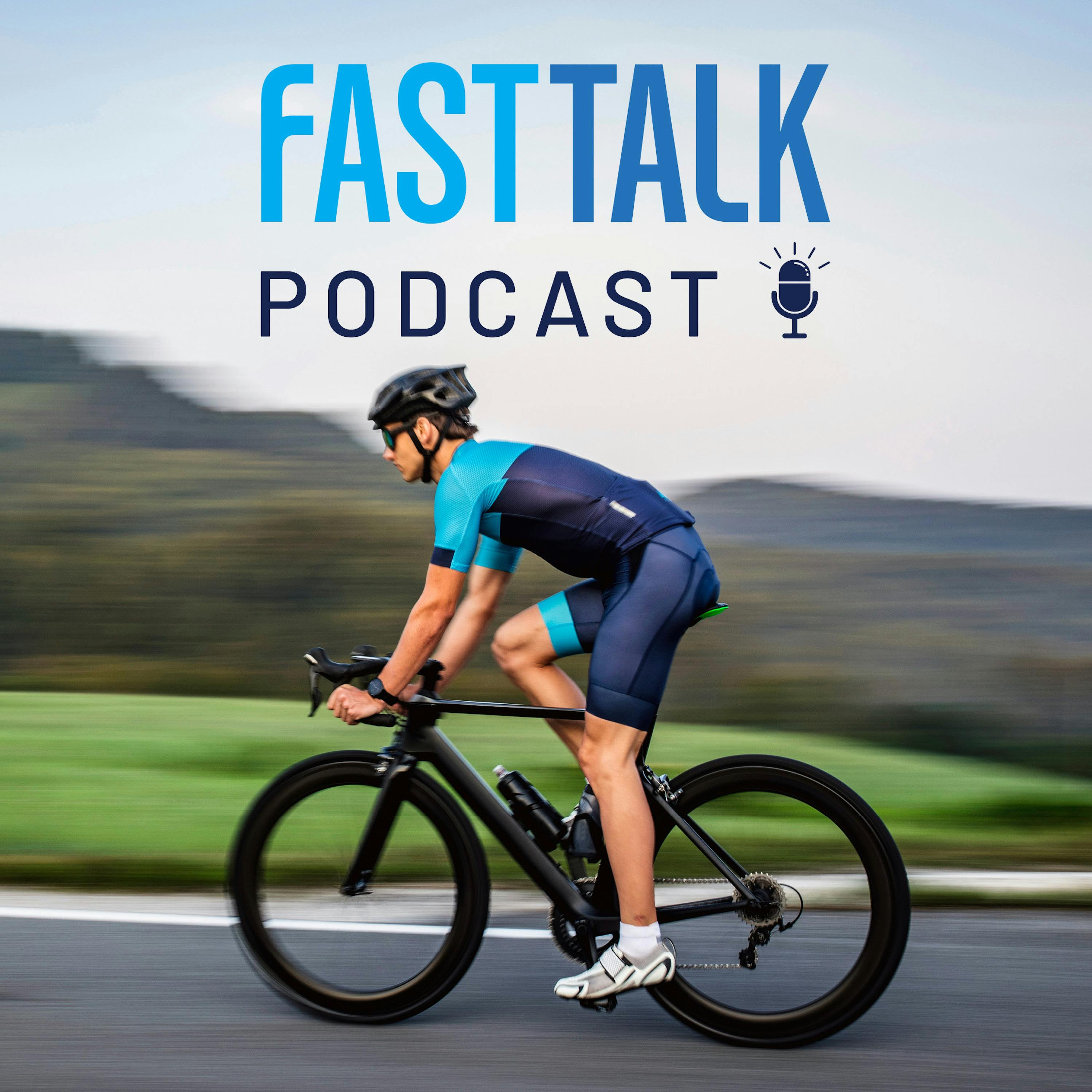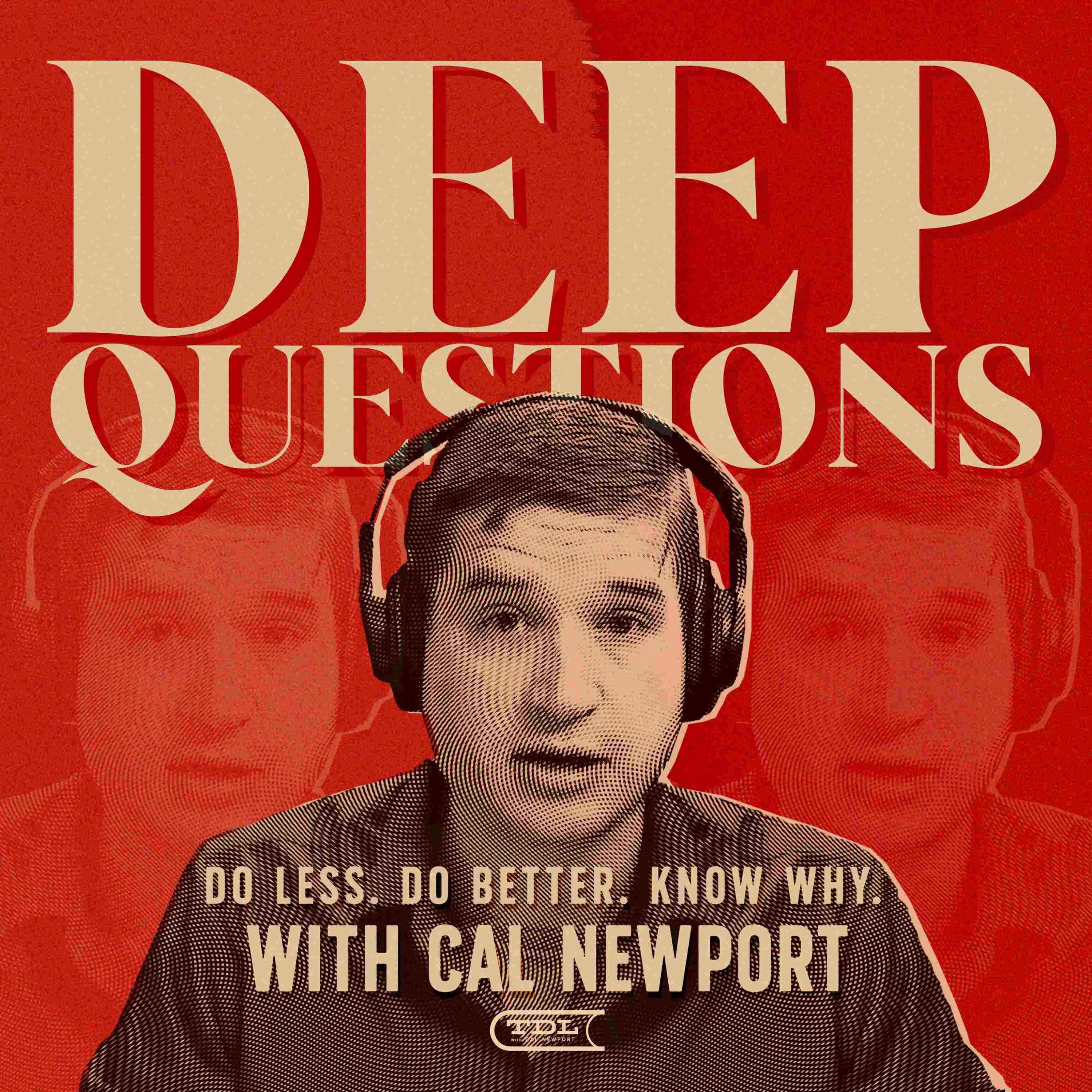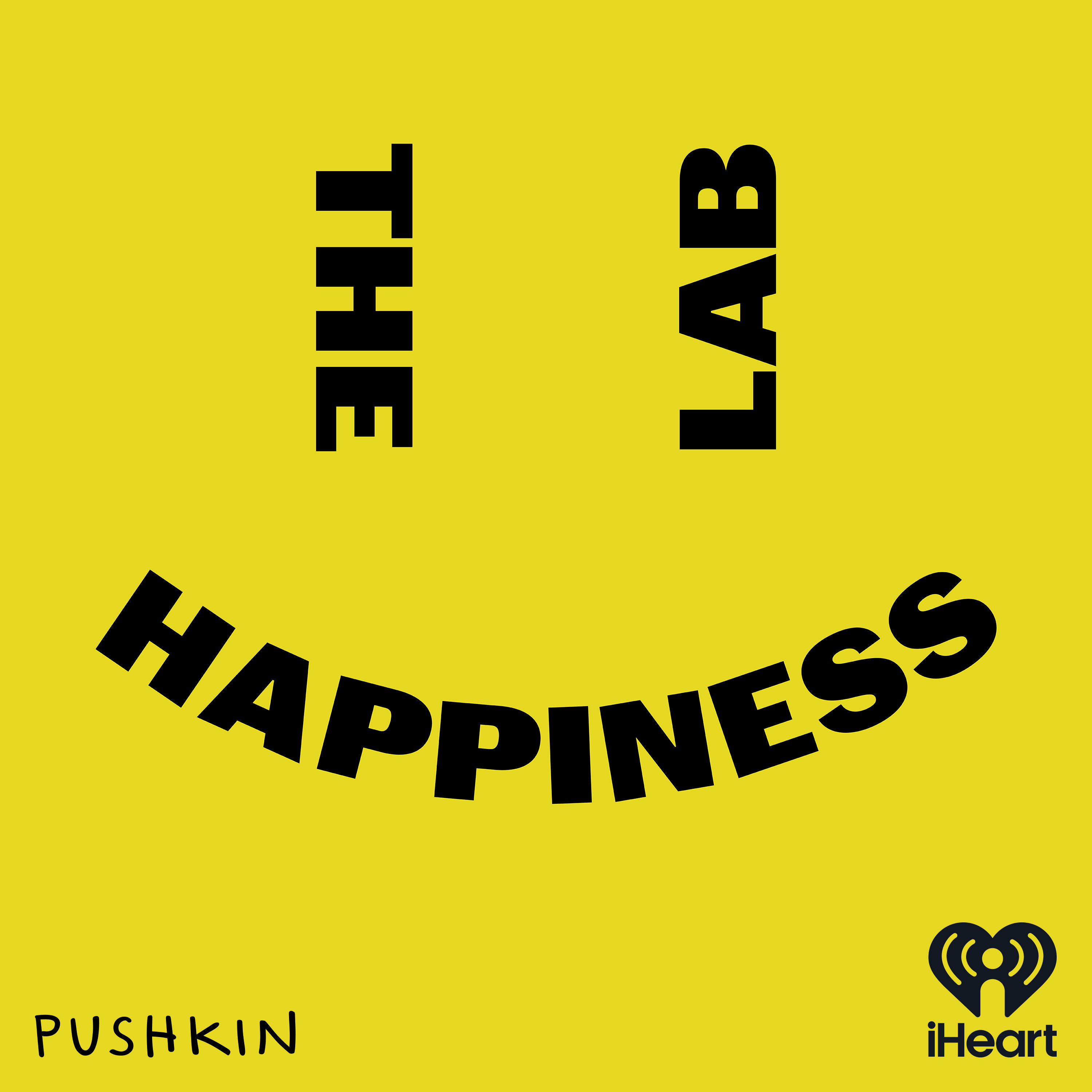
The Full Circle Podcast
The Full Circle Podcast offers listeners insights into topics and ideas pertaining to endurance sports training and racing. Hosted by Coach Laura Henry, this podcast releases episodes weekly and discusses training best practices, effective workouts, compelling research, coaching methodologies, physiology and recovery, and the best tools to help guide you unlock your potential and achieve your best performance.
The Full Circle Podcast is part of Full Circle Endurance, which is an endurance sports coaching company that serves athletes in many endurance sports, including triathlon, running, cycling, and open water swimming.
To learn more about how Full Circle Endurance can help you reach your goals, please visit us at: https://FullCircleEndurance.com/
The Full Circle Podcast
Why Winter & Off-Season Training is Vital for Endurance Athletes
The Off-Season is often mistakenly thought of as unimportant. Nothing could be further from the truth. Training in the Off-Season and Winter season is a vitally important component of overall training for endurance athletes and is what sets the stage for what athletes traditionally consider “real” training later on as their goals loom nearer.
Coach Laura discusses why managing the Off-Season well is so important for endurance athletes.
Read this Coach Tip Tuesday:
Learn more about Full Circle Endurance: https://FullCircleEndurance.com/
Submit questions to be answered on the show: https://FullCircleEndurance.com/podcast/
Reach out to Coach Laura Henry: Hello@FullCircleEndurance.com
(0:04 - 0:19)
Hello and welcome to the Full Circle Podcast, your source for insights into the science and art of endurance sports training and racing. I'm your host, Coach Laura Henry. Today is Coach Tip Tuesday.
(0:20 - 0:33)
I wish we had a different name for the offseason. Calling it what we do gives the impression that it's meant to be a season when athletes should take time completely off from training. Or anything endurance sports related.
(0:33 - 0:41)
Which isn't true. Thus, its name implies that it's an unimportant phase of training. And nothing could be further from the truth than that.
(0:42 - 1:04)
Some athletes may use the offseason as a time to take time off from any and all training related activities. But athletes who incorporate endurance sports as a part of their lifestyle, rather than just as a one or two off goal, can't do this if they want to maintain their fitness. And they definitely cannot take such a long period of time off if they want to increase their fitness and see performance gains.
(1:05 - 1:31)
The offseason, or maintenance phase, as it's officially known in the context of an annual training plan, typically lasts four to eight weeks and it serves two incredibly important functions. The first function is to allow athletes to offload a bit of the training that they have sustained and the fatigue that they have built up over the course of the main season. It's important to note that offload does not mean take time completely off from training.
(1:32 - 1:51)
In short, athletes go through a period of planned detraining during the offseason. Detraining is the partial or complete loss of training induced adaptations in response to an insufficient training stimulus. Training sensation, on the other hand, is a complete stop of all training related activities.
(1:51 - 2:32)
A lot of athletes mistakenly think that the offseason is a time for training cessation when it's actually meant to be a time of planned detraining that results in the partial loss of the adaptations that resulted from the most recent season's training. In fact, utilizing the offseason as a period of training cessation is often the very worst thing an athlete can do when it comes to setting up their subsequent goals and season and seasons for success. Proper detraining is really important because it allows the body to become resensitized to the training volume and intensity that will be necessary to make performance and fitness gains in the future, both in the upcoming season and in seasons to come.
(2:32 - 2:48)
Studies have shown that there is a Goldilocks amount of detraining that athletes must incur in order to see gains in the future. Too much detraining causes too far of a setback that they cannot recover from. Too little detraining causes stagnation, overuse, or burnout.
(2:48 - 3:18)
This Goldilocks amount of detraining hovers right around 4-5%, meaning that athletes should seek to manage their offseason so that they are detraining by about 4-5% from where they were in the main season. Stacking several well-managed seasons and offseasons on top of each other, athletes can see sustained incremental gains over time this way. All endurance sports training is a planned manipulation of variables such as duration, intensity, and frequency in order to achieve desired adaptations.
(3:19 - 3:35)
These adaptations, in turn, lead to achieving a desired outcome. In short, training is a manipulation of different stimuli in order to elicit desired adaptations. The body needs different and varied stimuli in order to keep it guessing at what is coming next.
(3:35 - 3:55)
It gets bored relatively easily, and when it is bored, it will not adapt. Variability keeps it adapting to the stimulus that is imposed on it, and it's these desired adaptations that we are ultimately seeking in endurance sports training. Desensitizing the body to some stimulus allows it to be ready to receive imposed training and stimulus in the future.
(3:56 - 4:25)
The second key function of the offseason is to establish a good foundation of habits and behaviors that will set an athlete up for greater success in the upcoming seasons and beyond. It is not uncommon for athletes to drift away from good habits and behaviors over the course of a training and racing season. As goal races loom near, as life unfolds in ways that we don't expect, and as we accumulate fatigue over the course of a season, keeping up with all of the important foundational habits that set us up for success can seem overwhelming and or unimportant.
(4:25 - 4:50)
It becomes easier to justify neglecting these things as the season wears on. The offseason provides an important time to reconnect with and to reestablish these all-important good habits, perhaps even solidifying them a bit more so that they have more staying power in the upcoming season than they have in the past. The number one correlation between the best athletes, both age group and professional, is a successfully executed offseason.
(4:50 - 5:02)
Unfortunately, too few athletes recognize this truth, and they mismanage the offseason. They either do too little or they do too much. Then, in the coming season, they don't fully achieve the goals that they set for themselves.
(5:02 - 5:13)
They wonder why. Often they point to more acute or near factors that may have influenced their season's outcome, but these are often not the true root cause. Unfortunately, the passage of time is deceiving for athletes.
(5:13 - 5:36)
Because a decent amount of time has passed between the offseason and their A goal race, athletes won't attribute their lack of success to something they did or didn't, as it were, do eight to nine months earlier. They think that the reason must be more acute, something closer, and something that they can wrap their fingers and head around more clearly, more tangibly. But what you do now impacts what you will be able to do later.
(5:36 - 5:52)
What you do in the offseason will, not might, have a very real and profound impact on the next season and the ones that follow it. The good news is that this goes both ways. If the offseason isn't planned and executed well, it will have negative impacts on what you are able to do in the upcoming season.
(5:52 - 6:18)
But if it is executed well, then it can have tremendously positive impacts on what you are able to do in the upcoming season. If you remain consistent, lay down a solid foundation of habits and behaviors, and embrace the truth that what you are doing now is going to enable you to do more specific training later on, you will set yourself up to have the highest probability of reaching your goals in the upcoming season. The offseason is tricky because you don't quote-unquote need to train.
(6:18 - 6:50)
You don't have A-goal races looming, and A-races are a major, major source of motivation for most athletes to train quote-unquote seriously, aka frequently and consistently. Many, many athletes try to resist this truth, but as the COVID-19 pandemic, when all races were canceled and many athletes stopped training entirely as a result of that, clearly showed us that most athletes are not as intrinsically motivated as they might wish or imagine themselves to be. Most athletes are motivated by external things such as races, and this is okay.
(6:50 - 7:02)
In fact, it's more than okay. It's normal, and it's totally acceptable. If you fall into this bucket, and remember, you probably do, it's important to embrace this truth and work with it so we can leverage it to your advantage.
(7:03 - 7:32)
The offseason also falls during a season, winter, when athletes generally have lower motivation to train. For athletes living in colder climates, this is due to the fact that a lot of their training gets moved indoors versus outdoors, which can be boring, to say the least, and in turn is demotivating for obvious reasons. The decrease in daylight and exposure to sunlight and outdoor elements can and does cause some people to experience seasonal affective disorder, also known as SAD, which is a type of depression that happens during certain seasons, fall and winter mostly, of the year.
(7:32 - 7:57)
It is set off by shorter days and less daylight, which in turn causes chemical changes in the brain that lead to symptoms of depression, especially for people who live in higher latitudes. Thankfully, exercise does significantly counteract these seasonal effects and the effects of depression. Athletes who remain active through the fall and winter seasons, and therefore the offseason, often report better mental health outcomes than those who decide to stop training altogether.
(7:57 - 8:22)
Finally, for our friends in the northern hemisphere, the offseason also overlaps with the holiday season. For those of us who live in the United States of America, the holidays represent an even bigger chunk of time and an even bigger obstacle since we celebrate Thanksgiving in November, thereby extending the holiday season. Obligations, travel, family visits and memories, perhaps sad ones, of holiday seasons past can all create a milestone that makes it challenging to train during this time of year.
(8:22 - 9:11)
Since the absence of A races means that you don't quote unquote need to train in the offseason and because there are significant seasonal motivational factors in play, you need to want to train if you are going to train successfully during this time of year. The question you need to ask yourself is this, do you want to? Most athletes will naively answer this question with a resounding yes, but they often respond this way without really thinking it through, without really considering what the actual day-to-day experience of training through this time of year is going to feel and be like, and without truly understanding their why, their deep-rooted reason for setting endurance sports goals and engaging in endurance sports training. The most important component to understanding if you want to train through the offseason is to understand what your why is.
(9:11 - 9:33)
To understand, to truly understand what your why is, you must know your authentic self and you must be setting goals that are in alignment with it. Athletes also often imagine that inspiration and motivation to do something, such as training, will strike them randomly, like a lightning bolt coming down from the sky. But this isn't an accurate imagining, to say the least.
(9:33 - 9:54)
Like so many things in both endurance sports and in life, intentional action is the catalyst for future actions. In the context of this conversation, deciding that you want to train and then doing it is often the thing that will yield more motivation to train. In essence, doing a thing begets more desire to do said thing.
(9:54 - 10:04)
As I've said countless times over the years, you don't need to feel good to get going. You need to get going and therefore give yourself a chance to feel good. You need to decide what you want.
(10:05 - 10:14)
You need to decide to want to train in the offseason if you are going to do it. You need to make it an intentional choice. It will not just randomly manifest as something you want to do.
(10:14 - 10:26)
You need to make a choice and take deliberate action. In the offseason, you don't have the quote-unquote reward of a race for doing your workouts. All you have is the reward of the process itself, of the doing of the workouts.
(10:26 - 10:50)
Your reward for doing one workout is the knowledge that the workout is a piece of a larger puzzle to help you accomplish your long-term goals. Your reward for doing the next workout is the knowledge that those two workouts are stacking together to create a more stable foundation for that larger puzzle. Strung together over many months, each individual workout completed in the offseason adds up to carry a lot of weight in the coming season and seasons.
(10:51 - 11:19)
If you do decide to take this important, though admittedly sometimes challenging, step to train, you will be rewarded in the coming season and subsequent seasons with increased durability, resilience, mental strength, and mental health. In other words, you will have a wide array of skills and tools at your disposal in the coming season to help you achieve the goals you set for yourself. As I've touted for most of my career, consistency is one of the most important things an athlete can do for their training and performance.
(11:19 - 11:40)
Maintaining a training routine through the offseason represents a manifestation of consistency. While consistency is undoubtedly important through the main season, it is not the only time when it matters. Consistency is important through all phases of training, even if race day, or anything similarly important to you, is many months or even years away.
(11:41 - 12:07)
Consistency is what sets the stage for your body and your mind to be able to handle more specific training, which usually comes in the form of increased volume and or intensity. You will not be able to handle a higher training volume or intensity if you do not have a solid foundation of consistency. Simply put, you need to be consistent now, in the offseason, if you want to have both the opportunity and the ability to do the best training possible in the main season.
(12:07 - 12:25)
But there is balance here. Just because consistency is important doesn't mean that you need to train as hard, as much, or as specifically as you do during the main season. Remember, one of the most important functions of the offseason is to get the body in a state where it is going to be resensitized to the specifics of training in the main season.
(12:25 - 12:38)
In other words, it is meant to prepare your body to be able to handle the load that is yet to come. Stress plus rest equals growth. The offseason serves as the rest component of this equation in the context of an annual training plan.
(12:39 - 12:59)
The offseason may be off-putting to some, but athletes who want to maintain fitness and to see performance gains should treat this time of year with reverence and to seek to manage it well. During this time of year, a lack of races, seasonal changes, and a lot of obligations can become convenient excuses to set workouts aside. Ask yourself if you want to train at this time of year.
(13:00 - 13:21)
And if you do, be sure you remind yourself of your why, the reason that you set goals and do endurance sports in the first place. By reaffirming your why, deciding that you want to train, and making a conscious choice to do so, you will make the offseason a much more pleasant and powerful time of year. That was another episode of the Full Circle Podcast.
(13:22 - 13:38)
Subscribe to the Full Circle Podcast wherever you listen to your favorite podcasts. If you like what you listen to, please be sure to leave us a rating and review as this goes a long way in helping us reach others. The thoughts and opinions expressed on the Full Circle Podcast are those of the individual.
(13:38 - 14:02)
As always, we love to hear from you and we value your feedback. Please send us an email at podcast at fullcircleendurance.com or visit us at fullcircleendurance.com backslash podcast. To find training plans, see what other coaching services we offer, or to join our community, please visit fullcircleendurance.com. I'm Coach Laura Henry.
Thanks for listening.




